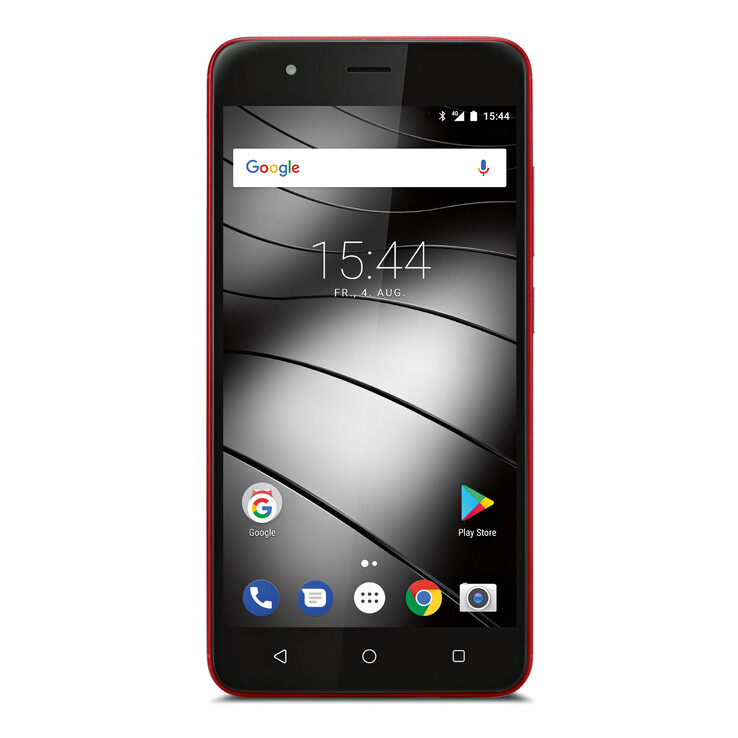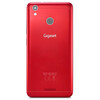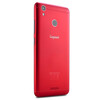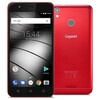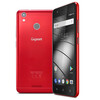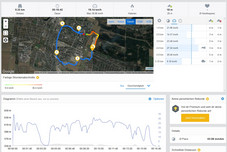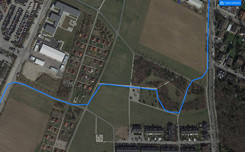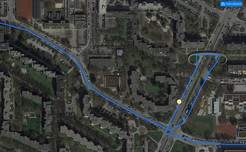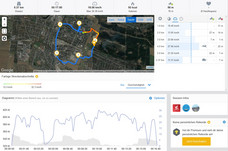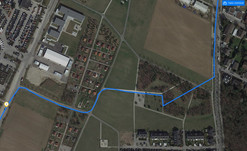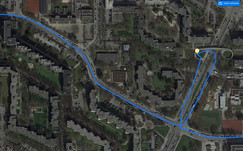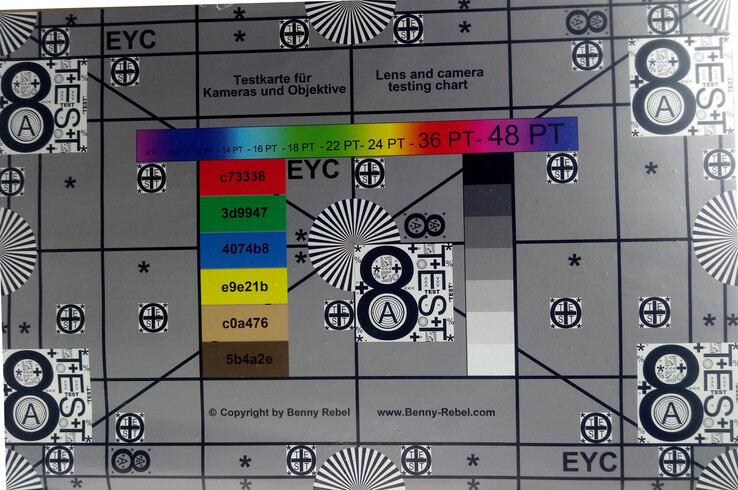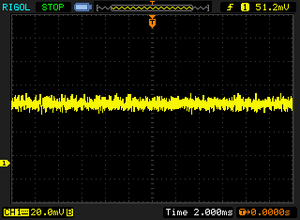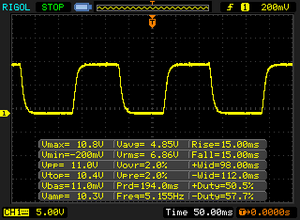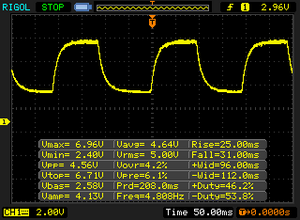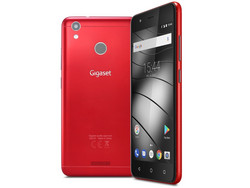Breve Análise do Smartphone Gigaset GS270
Os Top 10
» Os Top 10 Portáteis Multimídia
» Os Top 10 Portáteis de Jogos
» Os Top 10 Portáteis Leves para Jogos
» Os Top 10 Portáteis Acessíveis de Escritório/Empresariais
» Os Top 10 Portáteis Premium de Escritório/Empresariais
» Os Top 10 dos Portáteis Workstation
» Os Top 10 Subportáteis
» Os Top 10 Ultrabooks
» Os Top 10 Conversíveis
» Os Top 10 Tablets
» Os Top 10 Smartphones
» A melhores Telas de Portáteis Analisadas Pela Notebookcheck
» Top 10 dos portáteis abaixo dos 500 Euros da Notebookcheck
» Top 10 dos Portáteis abaixo dos 300 Euros
Size Comparison
| Networking | |
| iperf3 transmit AX12 | |
| Gigaset GS270 | |
| Oukitel U18 | |
| HTC Desire 12 | |
| Xiaomi Redmi 5 Plus | |
| Huawei Y6 2018 | |
| iperf3 receive AX12 | |
| Oukitel U18 | |
| Gigaset GS270 | |
| HTC Desire 12 | |
| Xiaomi Redmi 5 Plus | |
| Huawei Y6 2018 | |
| |||||||||||||||||||||||||
iluminação: 93 %
iluminação com acumulador: 421 cd/m²
Contraste: 1581:1 (Preto: 0.27 cd/m²)
ΔE ColorChecker Calman: 6.4 | ∀{0.5-29.43 Ø4.77}
ΔE Greyscale Calman: 8.6 | ∀{0.09-98 Ø5}
89.8% sRGB (Calman 2D)
Gamma: 1.9
CCT: 7366 K
| Gigaset GS270 IPS, 1920x1080, 5.2" | Oukitel U18 LCD IPS, 1512x720, 5.9" | Huawei Y6 2018 IPS, 1440x720, 5.7" | Xiaomi Redmi 5 Plus IPS, 2160x1080, 6" | HTC Desire 12 IPS, 1440x720, 5.5" | |
|---|---|---|---|---|---|
| Screen | -9% | 1% | 12% | 23% | |
| Brightness middle (cd/m²) | 427 | 565 32% | 483 13% | 620 45% | 502 18% |
| Brightness (cd/m²) | 418 | 535 28% | 460 10% | 612 46% | 499 19% |
| Brightness Distribution (%) | 93 | 83 -11% | 88 -5% | 96 3% | 84 -10% |
| Black Level * (cd/m²) | 0.27 | 0.55 -104% | 0.4 -48% | 0.57 -111% | 0.2 26% |
| Contrast (:1) | 1581 | 1027 -35% | 1208 -24% | 1088 -31% | 2510 59% |
| Colorchecker dE 2000 * | 6.4 | 7.1 -11% | 5.8 9% | 3.46 46% | 5.4 16% |
| Colorchecker dE 2000 max. * | 14.24 | 13.7 4% | 12.6 12% | 7.88 45% | 10.8 24% |
| Greyscale dE 2000 * | 8.6 | 6.2 28% | 5 42% | 3.9 55% | 6.2 28% |
| Gamma | 1.9 116% | 2.85 77% | 2.6 85% | 2.073 106% | 2.07 106% |
| CCT | 7366 88% | 7153 91% | 7709 84% | 7230 90% | 7660 85% |
| Colorchecker dE 2000 calibrated * | 4.42 |
* ... menor é melhor
Cintilação da tela / PWM (modulação por largura de pulso)
| Tela tremeluzindo / PWM não detectado | |||
[pwm_comparison] Em comparação: 53 % de todos os dispositivos testados não usam PWM para escurecer a tela. Se PWM foi detectado, uma média de 8070 (mínimo: 5 - máximo: 343500) Hz foi medida. | |||
Exibir tempos de resposta
| ↔ Tempo de resposta preto para branco | ||
|---|---|---|
| 30 ms ... ascensão ↗ e queda ↘ combinadas | ↗ ms ascensão | |
| ↘ ms queda | ||
| A tela mostra taxas de resposta lentas em nossos testes e será insatisfatória para os jogadores. Em comparação, todos os dispositivos testados variam de 0.1 (mínimo) a 240 (máximo) ms. » 79 % de todos os dispositivos são melhores. Isso significa que o tempo de resposta medido é pior que a média de todos os dispositivos testados (20.2 ms). | ||
| ↔ Tempo de resposta 50% cinza a 80% cinza | ||
| 56 ms ... ascensão ↗ e queda ↘ combinadas | ↗ ms ascensão | |
| ↘ ms queda | ||
| A tela mostra taxas de resposta lentas em nossos testes e será insatisfatória para os jogadores. Em comparação, todos os dispositivos testados variam de 0.165 (mínimo) a 636 (máximo) ms. » 92 % de todos os dispositivos são melhores. Isso significa que o tempo de resposta medido é pior que a média de todos os dispositivos testados (31.5 ms). | ||
| AnTuTu v6 - Total Score (classificar por valor) | |
| Gigaset GS270 | |
| Huawei Y6 2018 | |
| Xiaomi Redmi 5 Plus | |
| HTC Desire 12 | |
| Média Mediatek MT6750 (38547 - 44842, n=17) | |
| AnTuTu v7 - Total Score (classificar por valor) | |
| Gigaset GS270 | |
| Oukitel U18 | |
| Huawei Y6 2018 | |
| Xiaomi Redmi 5 Plus | |
| HTC Desire 12 | |
| Média Mediatek MT6750 (52278 - 56639, n=10) | |
| PCMark for Android | |
| Work performance score (classificar por valor) | |
| Gigaset GS270 | |
| Oukitel U18 | |
| Huawei Y6 2018 | |
| Xiaomi Redmi 5 Plus | |
| Média Mediatek MT6750 (3667 - 4532, n=13) | |
| Work 2.0 performance score (classificar por valor) | |
| Gigaset GS270 | |
| Oukitel U18 | |
| Huawei Y6 2018 | |
| Xiaomi Redmi 5 Plus | |
| HTC Desire 12 | |
| Média Mediatek MT6750 (2782 - 3394, n=17) | |
| GFXBench (DX / GLBenchmark) 2.7 | |
| T-Rex Onscreen (classificar por valor) | |
| Oukitel U18 | |
| Huawei Y6 2018 | |
| Xiaomi Redmi 5 Plus | |
| HTC Desire 12 | |
| Média Mediatek MT6750 (12 - 25, n=16) | |
| Média da turma Smartphone (12 - 166, n=150, últimos 2 anos) | |
| 1920x1080 T-Rex Offscreen (classificar por valor) | |
| Oukitel U18 | |
| Huawei Y6 2018 | |
| Xiaomi Redmi 5 Plus | |
| HTC Desire 12 | |
| Média Mediatek MT6750 (12 - 17, n=16) | |
| Média da turma Smartphone (22 - 954, n=150, últimos 2 anos) | |
| GFXBench 3.0 | |
| on screen Manhattan Onscreen OGL (classificar por valor) | |
| Gigaset GS270 | |
| Oukitel U18 | |
| Huawei Y6 2018 | |
| Xiaomi Redmi 5 Plus | |
| HTC Desire 12 | |
| Média Mediatek MT6750 (5.6 - 13, n=17) | |
| Média da turma Smartphone (18 - 166, n=152, últimos 2 anos) | |
| 1920x1080 1080p Manhattan Offscreen (classificar por valor) | |
| Gigaset GS270 | |
| Oukitel U18 | |
| Huawei Y6 2018 | |
| Xiaomi Redmi 5 Plus | |
| HTC Desire 12 | |
| Média Mediatek MT6750 (5.3 - 7.1, n=17) | |
| Média da turma Smartphone (12 - 606, n=151, últimos 2 anos) | |
| GFXBench 3.1 | |
| on screen Manhattan ES 3.1 Onscreen (classificar por valor) | |
| Gigaset GS270 | |
| Oukitel U18 | |
| Huawei Y6 2018 | |
| Xiaomi Redmi 5 Plus | |
| HTC Desire 12 | |
| Média Mediatek MT6750 (3.8 - 10, n=17) | |
| Média da turma Smartphone (11 - 166, n=152, últimos 2 anos) | |
| 1920x1080 Manhattan ES 3.1 Offscreen (classificar por valor) | |
| Gigaset GS270 | |
| Oukitel U18 | |
| Huawei Y6 2018 | |
| Xiaomi Redmi 5 Plus | |
| HTC Desire 12 | |
| Média Mediatek MT6750 (3.5 - 4.7, n=17) | |
| Média da turma Smartphone (8.4 - 413, n=151, últimos 2 anos) | |
| JetStream 1.1 - Total Score | |
| Xiaomi Redmi 5 Plus (Chrome 66) | |
| Huawei Y6 2018 (Chrome 66) | |
| Gigaset GS270 | |
| Oukitel U18 (Chrome 65) | |
| Média Mediatek MT6750 (12 - 20.8, n=19) | |
| HTC Desire 12 (Chrome 66.0.3359.158) | |
| Octane V2 - Total Score | |
| Média da turma Smartphone (2228 - 126661, n=191, últimos 2 anos) | |
| Xiaomi Redmi 5 Plus (Chrome 66) | |
| Oukitel U18 (Chrome 65) | |
| Gigaset GS270 | |
| Média Mediatek MT6750 (1994 - 3506, n=19) | |
| HTC Desire 12 (Chrome 66.0.3359.158) | |
| Huawei Y6 2018 (Chrome 66) | |
| Mozilla Kraken 1.1 - Total | |
| HTC Desire 12 (Chrome 66.0.3359.158) | |
| Huawei Y6 2018 (Chrome 66) | |
| Oukitel U18 (Chrome 65) | |
| Média Mediatek MT6750 (11708 - 22627, n=19) | |
| Gigaset GS270 | |
| Xiaomi Redmi 5 Plus (Chrome 66) | |
| Média da turma Smartphone (257 - 28190, n=151, últimos 2 anos) | |
| WebXPRT 2015 - Overall | |
| Xiaomi Redmi 5 Plus (Chrome 66) | |
| Huawei Y6 2018 (Chrome 66) | |
| Média Mediatek MT6750 (34 - 78, n=5) | |
* ... menor é melhor
| Gigaset GS270 | Oukitel U18 | Huawei Y6 2018 | Xiaomi Redmi 5 Plus | HTC Desire 12 | Média 16 GB eMMC Flash | Média da turma Smartphone | |
|---|---|---|---|---|---|---|---|
| AndroBench 3-5 | 20% | 9% | 74% | 7% | -27% | 2163% | |
| Sequential Read 256KB (MB/s) | 269 | 273.1 2% | 254.3 -5% | 270 0% | 211.4 -21% | 164.5 ? -39% | 2208 ? 721% |
| Sequential Write 256KB (MB/s) | 44.86 | 109.2 143% | 65.6 46% | 194.5 334% | 103.8 131% | 43 ? -4% | 1887 ? 4106% |
| Random Read 4KB (MB/s) | 34.64 | 28.7 -17% | 38.8 12% | 79.5 130% | 16.69 -52% | 21.7 ? -37% | 297 ? 757% |
| Random Write 4KB (MB/s) | 10.95 | 12.96 18% | 9 -18% | 7.1 -35% | 7.54 -31% | 8.08 ? -26% | 347 ? 3069% |
| Sequential Read 256KB SDCard (MB/s) | 75.8 | 71.5 ? -6% | 84.9 ? 12% | 84.4 11% | 81.8 ? 8% | 59.1 ? -22% | |
| Sequential Write 256KB SDCard (MB/s) | 58.9 | 47.02 ? -20% | 64 ? 9% | 59.5 1% | 61.1 ? 4% | 39.8 ? -32% |
(±) A temperatura máxima no lado superior é 40.1 °C / 104 F, em comparação com a média de 35.2 °C / 95 F , variando de 21.9 a 247 °C para a classe Smartphone.
(+) A parte inferior aquece até um máximo de 38.5 °C / 101 F, em comparação com a média de 34 °C / 93 F
(+) Em uso inativo, a temperatura média para o lado superior é 31 °C / 88 F, em comparação com a média do dispositivo de 32.9 °C / ### class_avg_f### F.
Gigaset GS270 análise de áudio
(±) | o volume do alto-falante é médio, mas bom (###valor### dB)
Graves 100 - 315Hz
(-) | quase nenhum baixo - em média 27.2% menor que a mediana
(+) | o baixo é linear (5.9% delta para a frequência anterior)
Médios 400 - 2.000 Hz
(±) | médios reduzidos - em média 5.1% menor que a mediana
(±) | a linearidade dos médios é média (7.5% delta para frequência anterior)
Altos 2 - 16 kHz
(+) | agudos equilibrados - apenas 2.7% longe da mediana
(+) | os máximos são lineares (2.1% delta da frequência anterior)
Geral 100 - 16.000 Hz
(±) | a linearidade do som geral é média (28.4% diferença em relação à mediana)
Comparado com a mesma classe
» 74% de todos os dispositivos testados nesta classe foram melhores, 5% semelhantes, 22% piores
» O melhor teve um delta de 11%, a média foi 35%, o pior foi 134%
Comparado com todos os dispositivos testados
» 85% de todos os dispositivos testados foram melhores, 3% semelhantes, 12% piores
» O melhor teve um delta de 4%, a média foi 24%, o pior foi 134%
HTC Desire 12 análise de áudio
(+) | os alto-falantes podem tocar relativamente alto (###valor### dB)
Graves 100 - 315Hz
(-) | quase nenhum baixo - em média 35.3% menor que a mediana
(±) | a linearidade dos graves é média (9.4% delta para a frequência anterior)
Médios 400 - 2.000 Hz
(±) | médios reduzidos - em média 6.3% menor que a mediana
(±) | a linearidade dos médios é média (10% delta para frequência anterior)
Altos 2 - 16 kHz
(±) | máximos mais altos - em média 6.8% maior que a mediana
(±) | a linearidade dos máximos é média (8.7% delta para frequência anterior)
Geral 100 - 16.000 Hz
(±) | a linearidade do som geral é média (27.7% diferença em relação à mediana)
Comparado com a mesma classe
» 72% de todos os dispositivos testados nesta classe foram melhores, 5% semelhantes, 23% piores
» O melhor teve um delta de 11%, a média foi 35%, o pior foi 134%
Comparado com todos os dispositivos testados
» 84% de todos os dispositivos testados foram melhores, 3% semelhantes, 13% piores
» O melhor teve um delta de 4%, a média foi 24%, o pior foi 134%
| desligado | |
| Ocioso | |
| Carga |
|
Key:
min: | |
| Gigaset GS270 5000 mAh | Oukitel U18 4000 mAh | Huawei Y6 2018 3000 mAh | Xiaomi Redmi 5 Plus 4000 mAh | HTC Desire 12 2730 mAh | Média Mediatek MT6750 | Média da turma Smartphone | |
|---|---|---|---|---|---|---|---|
| Power Consumption | -83% | -58% | -34% | -10% | -29% | -32% | |
| Idle Minimum * (Watt) | 0.8 | 1.12 -40% | 1.7 -113% | 0.7 13% | 1.13 -41% | 1.13 ? -41% | 0.849 ? -6% |
| Idle Average * (Watt) | 1.6 | 2.27 -42% | 2.5 -56% | 2.8 -75% | 2.03 -27% | 2.02 ? -26% | 1.446 ? 10% |
| Idle Maximum * (Watt) | 2 | 2.49 -25% | 3.2 -60% | 3.4 -70% | 2.05 -2% | 2.42 ? -21% | 1.63 ? 18% |
| Load Average * (Watt) | 3.7 | 10.75 -191% | 5.2 -41% | 4.2 -14% | 3.68 1% | 5.21 ? -41% | 6.87 ? -86% |
| Load Maximum * (Watt) | 5.7 | 12.39 -117% | 6.8 -19% | 7.2 -26% | 4.52 21% | 6.56 ? -15% | 11.2 ? -96% |
* ... menor é melhor
| Gigaset GS270 5000 mAh | Oukitel U18 4000 mAh | Huawei Y6 2018 3000 mAh | Xiaomi Redmi 5 Plus 4000 mAh | HTC Desire 12 2730 mAh | |
|---|---|---|---|---|---|
| Duração da bateria | |||||
| WiFi v1.3 (h) | 12.3 | 10.7 -13% | 10.7 -13% | 8.3 -33% | 7.3 -41% |
Pro
Contra
Em nosso teste, o Gigaset GS270 apresenta-se como um smartphone de gama média inferior que não apresenta muitas fraquezas importantes. O desempenho oferecido está no nível esperado do hardware integrado e, além da versão ligeiramente antiga do Android, quase não há motivo para reclamações. Embora muitos dispositivos concorrentes ofereçam melhores resultados em algumas áreas, eles apresentam problemas em outras.
Os compradores da GS270 obtêm exatamente o que a Gigaset prometeu: um smartphone Android por 200 Euros (~$234) com uma bateria de longa duração e um sistema fluente para o uso diário.
A um preço de cerca de 200 euros (~234), os compradores interessados devem pensar sobre os recursos de um smartphone que são importantes para eles. Qualquer pessoa que tire fotos apenas ocasionalmente e não precise rodar programas exigentes, terá um dispositivo sólido com o Gigaset GS270, que é adequado para fazer chamadas telefônicas e pode lidar com todos os aplicativos usuais. Além disso, ultrapassa a maioria dos concorrentes com sua longa duração de bateria.
Gigaset GS270
- 05/27/2018 v6 (old)
Mike Wobker


